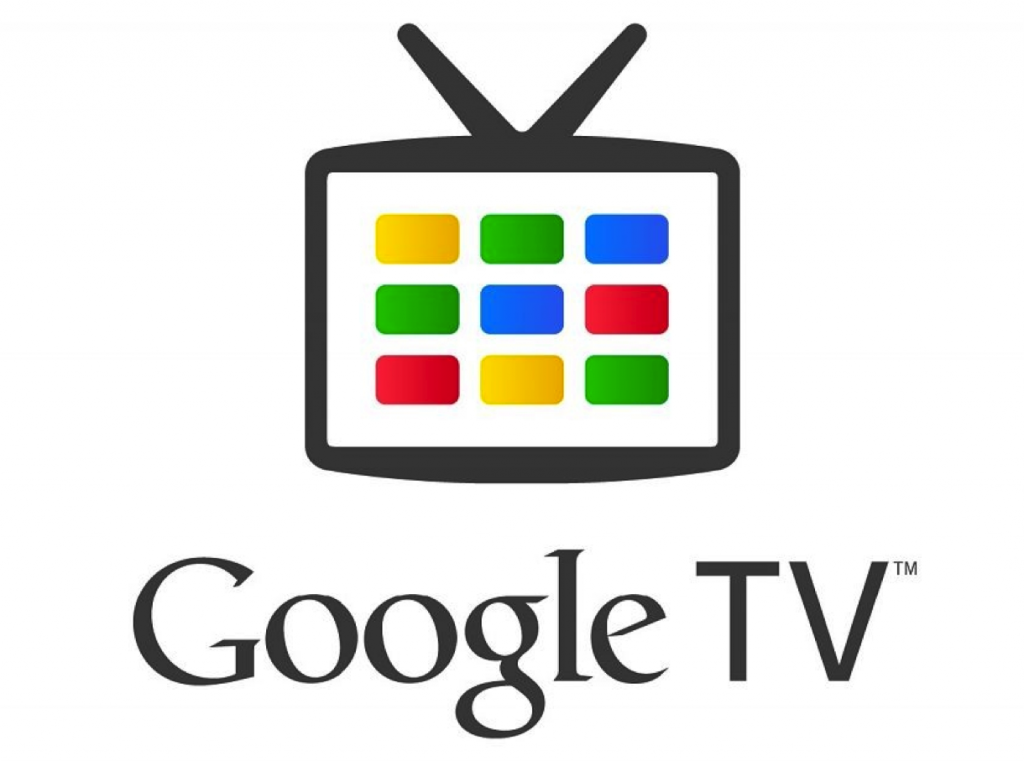Google’s evil plan is simple and not so evil.
Don’t Be Evil

Any successful company is going to draw criticism. Google probably gets more of it than others because of their ‘Don’t Be Evil’ motto. Algorithm changes shuffle branded sites higher and people shout ‘evil!’ Google begins to disintermediate certain verticals and people shout ‘evil!’
Most of the posts about Google’s evil ways focus around these two themes. So much time and energy is spent raging against changes that are simply a reflection of us – the user. When we collectively stop shopping at branded stores over smaller boutiques then we’ll see that reflected in our search results.
And the last time I checked no one was mourning the demise of the milk man or shedding tears over Tower Records or Blockbuster. It sucks if you’re the business getting disintermediated but do you really want to go to another website to get the current weather?
Evil? It’s not Google, it’s you.
Google’s Evil Plan
Instead of talking about all of these natural business moves and conjuring up some nefarious plot, I want to talk about Google’s real strategy. Here’s the truth. Here’s Google’s plan.
Get people to use the Internet more.
That’s it. The more time people spend on the Internet the more time they’ll engage in revenue generating activities such as viewing and clicking display ads and performing searches.
The way Google executes on this strategy is to improve speed and accessibility to the Internet. Google wants to shorten the distance between any activity and the Internet. Lets look at some of Google’s initiatives with this in mind.
Chrome

Firefox was doing a bang up job of breaking Internet Explorer’s browser monopoly. Chrome certainly hastened IE’s decline and helped secure more search volume. Yet Chrome developers have long said that their goal isn’t market share but to make the browsing experience faster.
In a very nearsighted way, making browsers faster is the goal. Yet, the faster the web experience, the more page views people rack up and the more searches they’ll perform.
Chrome is about reducing the friction of browsing the Internet.
SPDY

Google can only do so much with Chrome to speed up the web. Enter SPDY, an open networking protocol, which looks to be the basis for HTTP 2.0.
Its goal is to reduce the latency of web pages.
That’s technical speak for making the web faster. This is what users want. This is what makes users happy. Milliseconds matter when it comes to user satisfaction. And satisfying the user is great for business.
Android

Similar to Chrome, Google saw that users would increasingly access the Internet via phones. They learned from their web browser experience and decided to jump into the vertical early and it’s paid off. Google now commands nearly 54% of the smartphone market.
Android doesn’t have to make money directly. It provides unfettered access to revenue generating activities and allows Google to push the industry forward in terms of speed.
Motorola Mobility

Not content to simply push the envelope with software, Google decided to grab Motorola Mobility and improve on hardware too. The rumors around the Google X phone are increasing.
Long battery life and wireless charging are two of the more tantalizing possibilities These are clearly features that would greatly benefit users but … they also ensure that you’ll nearly always be able to connect to the Internet. See how that works?
Google Now

Not using the Internet enough? Google Now can help change that by automagically serving up useful cards based on your search history and behavior. Don’t get me wrong. I like Google Now and find it to be more and more valuable as they add more functionality.
But it’s no mystery that predictive search is also about stimulating more Internet activity.
Google Fiber

Many seem to think Google is crazy to pursue fiber. It’s massive. It’s expensive. But it’s also exactly in line with their goal of increasing Internet usage. In fact, they’re pretty clear in the messaging on the Google Fiber page.
Google Fiber starts with a connection speed 100 times faster than today’s broadband. Instant downloads. Crystal clear high definition TV. And endless possibilities. It’s not cable. And it’s not just Internet. It’s Google Fiber.
It’s not that Google would control the transmission (though that’s a nice side benefit), it’s that the friction to using the Internet would be nearly zero.
Google WiFi
![]()
Google already provides free WiFi in Mountain View, wanted to do it in San Francisco as far back as 2005 until it was torpedoed by politics and paranoia. Now Google provides free WiFi in the Chelsea neighborhood of New York. In addition, Google has been futzing with white space and a super-dense LTE network.
Can it be any more clear? Google wants ubiquitous Internet access.
Google Drive

I often see people argue that the cloud is Google’s big picture strategy. I think that’s still missing the point. The cloud is a means to an end.
Giving people the ability to access files from anywhere simply keeps them online longer. You don’t have the browser off working on your document, instead your online editing and saving your document. You’re searching for those documents.
You’re just a browser tab away from areas of the Internet where Google makes money. In short, Google Drive shortens the distance between work and activities that produce revenue for Google.
Chromebook

Taken to the extreme, Chromebook is essentially a computer that runs off the Internet and cloud. Everything is done online.
A new type of computer designed to help you get things done faster and easier.
Faster. There’s that word again. And easier is just a friendly way of saying ‘reduce friction’. At $199 and $249 Google is hoping that this new type of computer will start to find a market. This strikes me as the ultimate lock-in.
Google+

So what about Google+? At first blush, it doesn’t seem to fit.
I still believe a substantial reason for building Google+ was to develop better social signals and increase search personalization. However, I think the time spent in places where Google couldn’t reach (aka Facebook) was troubling.
Google needed to break the stranglehold Facebook had on social attention. They’ve certainly made inroads there and that’s really all they needed to do to ensure attention didn’t pool and persist in a Google dead zone.
Self Driving Cars

I’m shocked that people don’t see the brilliance of a self-driving car. The average commute time in the US is 25 minutes (pdf). So that’s nearly an hour each day that people can’t be actively on the Internet. Yet, they obviously want to be.
If you play Ingress (like I do) you can see where XM (roughly phone usage) is highest. It’s super high in parks and doctor’s offices and movie theaters. But it’s also concentrated at intersections. A red light and we’re diving for our phones.
Now imagine a self-driving car and how much more time you’d have to … be on the Internet. I’m just talking about commuting which is less than 20% of the driving done in this country!
A self driving car unlocks a vast amount of time that could be spent on the Internet.
Google Glass

I know the latest big thing is Sergey on the Subway but to me his skydive was more transformative. The message? Even if you’re falling out of the sky you can still use the Internet.
Google Glass could be the ultimate way to keep you connected to the Internet.
Perhaps we’ll reach a point where much of our consciousness is actually online. Why waste your time remembering useless things when you can simply retrieve them from your personal cloud? Sometimes the future in Charles Stross’ Accelerando seems almost inevitable.
Mind you, at times I feel the urge to live in a cabin in the woods but it’s usually quickly followed with a caveat of ‘with good satellite coverage or Internet access.’
Google TV

I think YouTube was initially thought to be the future of TV. The problem is that we’re very entrenched in traditional TV and inertia (and a lack of proper execution by Google TV) has allowed traditional TV to catch up.
This is the one place where Google is behind. Maybe Google TV picks up steam, or Google Fiber is the wedge into homes or Google acquires someone big like TiVo or Netflix.
Twitter is also both a major rival and potential acquisition target because of their position as the glue between screens.
Share of Time

I’m surprised that no one has compared Google’s strategy to Coke’s now abandoned ‘share of stomach‘ strategy. Google wants people to spend more of their time on the Internet. Think about that.
Once again it comes down to the ‘Don’t Be Evil’ motto. Coke didn’t care if they were creating a health epidemic as they rang up profits. Google, on the other hand, believes their services can improve our lives.
That kind of belief is what the tin foil hat conspiracy folks should really be worried about. It’s not any small tactical gaffe that could be chalked up in the evil column. It’s that Google believes they’re doing good. I sort of think so too.
TL;DR
Google’s strategy is to get people to use the Internet more. The more time people spend on the Internet the more time they’ll engage in revenue generating activities. As such, nearly every Google effort is focused on increasing Internet speed and access with the goal to shorten the distance between any activity and the Internet.
The Next Post: What I Learned In 2012
The Previous Post: New Ways To Track Keyword Rank



18 trackbacks/pingbacks
Comments About Google’s Evil Plan
// 67 comments so far.
Max // January 27th 2013
Yep. Google makes money when people do stuff on the Internet.
Ergo, Google’s object is to get people to do more stuff on the Internet.
AJ Kohn // January 28th 2013
Exactly Max. It’s that simple.
Rank Watch // January 28th 2013
You name anything related to web and you are going to see a whole lot of Google in that every inch. Now, internet cannot be termed without the mention of Google. It was Google only that laid the foundation for a more interactive, entertainment friendly and business enhancer web.
Iain // January 28th 2013
It would be interesting to take this paradigm of speed & omnipresent web access and use it to analyse other Google activities – such as ranking algorithms – to see if the thread holds.
I like your thinking here.
Malcolm Gibb // January 28th 2013
Very, very interesting theory (conspiracy) AJ. I have always wondered about what Google’s masterplan really was with their multiple ventures into tech and things like driverless cars. I would like to believe that they are truly a virtuous force that is trying to do good while changing and evolving our world for the better, yet really the basis for their self-indulgent investments is their own bottom line. You are right… the more time they can make people stay connected the wider revenue stream opportunities they create for themselves.
AJ Kohn // January 28th 2013
Thanks for your comment Malcolm.
Here’s the thing. I don’t see doing good and improving the bottom line as mutually exclusive activities. Unlike Coke who didn’t care about diabetes or obesity Google really believes that improving access to information and generally reducing the friction in our pursuits will be good for us. At the same time, they think they can be wildly profitable doing it.
Terence Kam // January 28th 2013
Excellent article, AJ!
I think your article complements very well with my article at http://estrategypro.com/how-does-google-make-money-if-it-gives-away-stuffs-for-free/
I can think of a catching fish analogy to describe Google’s strategy. To catch a bunch of fish, you need two parties to coordinate. The role of the first party is to chase the fish to specific location. The second party lies in wait in that location with a trap, e.g. a net (pun intended).
This article describes the first party- chasing consumers to the Internet (the “specific location”). My article describe the second party- trapping the consumers with made-by-Google free stuffs (“trap”).
Together, they ensure that Google can keep on selling scarce attention. The ultimate nightmare happens when the Net becomes our consciousness.
After Google Glass, the next project for Google will be Google Mind- a product where the UI is projected into the internal vision of our mind and user input is sourced directly from our internal cognitive process!
Mick Cropper // January 28th 2013
While I agree with everything in the post – I still believe Google are evil and are stealing from other businesses to ultimately earn them more advertising revenue, here are more details: http://www.michaelcropper.co.uk/2012/06/googles-business-plan-steal-content-and-screw-publishers-1081.html
Michael
AJ Kohn // January 28th 2013
Mick,
Thanks for your comment. I can’t really agree though. First, you don’t have to play. How much traffic has Google given these sites to build their business? Now, the first exchange was that Google made money on the ads while driving traffic to sites. But if your business is built on ‘thin’ page views for questions that are essentially answered at a glance, then you’re simply ripe for disintermediation.
When I want to know what date MLK was on in 2012 I don’t really want to go to a site to figure that out. Timezone conversion is another good example. Even better because WorldtimeBuddy upped the game and provided more value than most of the other sites making money on thin page views.
These sites can still exist but they can’t rely on thin page views which likely aren’t doing anything for the advertisers on those sites BTW. (Think of the advertisers!) Instead they need to build more value to retain and engage users. In short, if your business can be torpedoed by simple answers on Google proper then you’re business is shaky to begin with.
ur // January 28th 2013
Interesting synopsys AJ, booahhahahahah. . (Evil laugh)
Don Rhoades (@TheGonzoSEO) // January 28th 2013
AJ, Would you go so far to say that Google’s strategy is to get people to use Google properties more? Seems almost like that is what you mean when you say their goal is to get people to use “the Internet” more.
AJ Kohn // January 28th 2013
No Don. It’s just general Internet usage. Remember that Google has a huge display network so no matter where people go (minus Facebook) they wind up making money. And by speeding up the Internet they speed up discovery which likely stimulates more search queries.
Now, it certainly helps if they’re on a Google property to some extent, but in the scheme of things I don’t think Google cares too much about where people are, just that they’re on the Internet more.
bob gashitz // August 13th 2015
You speak of Google like my pastor speaks of god.
AJ Kohn // August 14th 2015
Oh, you mean like someone who has a deep and thorough understanding of a topic of study? Thank you.
Vikki // January 28th 2013
Up next Google Sleep wherein your Random Eye Movements chose keyword stings allowing you to surf the web in your sleep O_o
Don Rhoades (@TheGonzoSEO) // January 28th 2013
Thanks, AJ – Only reason I asked is because with exception to Motorola, all the things you list are Google properties. But with Motorola being married to Droid, it may as well be one too. Thanks for reminder of display network, though.
Stu Draper // January 28th 2013
Free market capitalism.
The invisible hand.
Beautiful.
Katina // January 28th 2013
I agree with Aj, they are just like any other giant company trying to take over the internet.
AJ Kohn // January 28th 2013
Well, that’s not exactly what I was saying Katina. Google has Internet usage monetization fairly well in hand. Mind you, they need to be vigilant to protect that and refine it but … search and display are humming along. They don’t need to take over the Internet. They just need people to use it more.
Mathias Philippe // January 28th 2013
Actually I think Google is not as evil as people say but far from being an angel also.
They find ways to put most their strategies into actions by offering awesome – and generally free – products.
So of course we should worry about what’s behind the scenes and this apparent generosity but on a simple user’s perspective, there is not much to complain about.
AJ Kohn // January 28th 2013
That’s pretty much how I’d call it. Google’s not evil but they’re not an angel either. They’re a business. And while they do believe that doing good will lead to a better bottom-line, it’s going to be Google’s definition of good.
Inside my Rocket // January 28th 2013
A friend mailed me a link to this post to my gmail account.
I clicked the link to read the post on my Android smartphone. I got disturbed before finishing so I bookmarked the link to read the rest later.
I finally had time for some serious reading so I fired up the post on my desktop – using Chrome naturally.
It’s a great post so I just might share it on my blog (backed up by Google Drive) later on.
I must fit right into the Google master plan
gregory smith // January 28th 2013
I really didn’t know a lot of this existed. Google is so huge. Make way, they need more room….
Matt Morgan // January 28th 2013
Awesome AJ. My favorite part of your article that really resonates with me: “A self driving car unlocks a vast amount of time that could be spent on the Internet.”
AJ Kohn // January 28th 2013
Thanks Matt. I think it’s the initiative that people don’t understand. They laugh and call it a pet project but if you’re peering deep into the future it could be … a massive increase in Internet usage.
Ashim // January 28th 2013
Each time users do not use a Google property (amazon, facebook or a forked android device), Google does not get user’s internet behavior data. Google only wants to make their properties faster and efficient, not the entire internet.
Google is the new Microsoft. Currently Google gets majority of their revenue from Fortune500 who show web ads while users are on Google properties. The other initiatives are ways to find alternate sources of revenue.
AJ Kohn // January 29th 2013
Ashim,
While user behavior is a powerful piece of data that is used to improve all Google products, I can’t agree that they only want _their_ properties to be faster. Google wants the entire Internet to be faster. Too many of their initiaties are neutral in nature from Chrome to SPDY to Fiber.
Google doesn’t need to focus on their properties because they essentially monetize the Internet and are the de facto way most navigate the Internet.
Trey Collier // January 29th 2013
You are one of Google’s best evangelists! I think you are spot on.
You might be missing the idea (I believe) that Google (and some much smaller others) are wanting to become a content delivery (aka Media…..aka Network channel like NBC, CBS, Cable alternative) and that Google Fiber/WiFi is an ENORMOUS step towards that goal that certainly have the Cable companies scrambling. (Check the news about Cable Co’s giving huge discounts for long term contracts in the KC area not to switch to G+Fiber?) Don’t get me wrong, you touched on it, but I’m thinking they plan to shake up the OTA, Cable, Direct TV channels, not to mention phone service companies to piggy back their current content onto more traditional services.
AJ Kohn // January 29th 2013
Trey,
Thanks for your comment. I call them like I see them. There are areas of Google that I’m less enamored with and have problems with but on the whole I can’t personalize those things nor demonize the whole for it.
I’ve heard that argument but I don’t see that as the real goal. Cable companies are freaked out because Google is willing to disintermediate them in their quest to move more activity online. The data transmission folks are collateral damage as Google seeks to reduce friction.
But of course Google would turn the content delivery business into profit center! I’m sure that’s a part of the equation, just not the goal.
Tim Acheson // January 29th 2013
This blog post is sets the bar to a new level for Google propaganda.
“Most of the posts about Google’s evil ways focus around these two themes [their motto and their search algorythm]”
From the beginning, this lengthy and thorough article resorts to the cheapest of all defensive propaganda strategies: selecting the least important criticisms and then focusing on these trivial issues in a lengthy diatribe. It’s is a classic case-study in corporate apologetics.
In reality, the majority of criticisms of Google focus on much more serious evils, ranging from gross tax-avoidance to major privacy concerns and serious anti-competitive practices. — Indeed, these are blatantly the most important and noteworthy issues in any discussion on the topics which this blog post attempts to address. There are many other important issues, too, which this blog post conveniently ignores.
“Any successful company is going to draw criticism.”
No, that is absolutely not implicitly true.
“Google probably gets more of it than others because of their ‘Don’t Be Evil’ motto.”
Have you considered the possibility that if Google attracts more criticism then perhaps it is because the criticism is deserved and in proportion to the scale of public concern? However, in reality, it is not widely considered fashionable to criticise Google in the way that it certainly is to criticise Microsoft for example. Google’s “don’t be evil” motto is merely a lense through which the corporations hypocrisy and double-standards are magnified — making Google even more of a joke by trying to present its self as the saviour of the world than it would be if it kept its head down.
AJ Kohn // January 29th 2013
Tim,
Thank you for your comments, though I think they miss the point of the piece and border on ad hominem attacks.
This is not really a post to debate activities that people view as evil. Instead I wanted to get past all that because it distracts from Google’s real strategy, which is to get people to use the Internet more.
Unfortunately, the rage, as you’ve demonstrated, gets in the way that type of dialog. This is not a sponsored post nor am I apologizing for Google. In fact, I bring up a concern which no one seems interested in discussing.
Nevertheless, the other criticisms you cite such as tax avoidance and anti-competitive behavior are firmly in the business category. Is Google not supposed to optimize their tax burden? Are they supposed to make it easy for competitors to eat their lunch? Google is a very savvy business and often plays hard ball.
Privacy could be a topic for another post altogether. The tracking is pervasive but that’s nothing new and Google isn’t alone in doing it. In fact, as an old school direct marketer I know that there’s more information housed offline than online. Personalization makes Google’s ad products better. Google made it easier to opt-out of tracking and when those people do make it to say, the Ad Preferences page, they’re more likely to change their settings than opt-out.
So what does that say about our collective view on privacy?
Finally, the statement that an successful company is going to draw criticism is absolutely true. It can be encapsulated in a simple truism: You can please some of the people all of the time, you can please all of the people some of the time, but you can’t please all of the people all of the time.
Jon // January 29th 2013
(not provided) is still evil
Nawaz // January 29th 2013
Get off the internet. Life is outside internet.
Dave Rogers // January 29th 2013
Google wants users interacting with their services on the internet so that they may gather data about users. Their “vision” appears to be: “to know what you want to do before you do.” They want to facilitate your life, buy anticipating your needs, wishes and desires, and then selling that information to the companies that may be able to meet those needs, wishes and desires.
The problem is, that vast store of information is a tempting resource for government and other nefarious actors. That degree of insight into user behavior offers opportunities to exploit people equally as great as the opportunities to “help them.”
Privacy is meaningless to Google. Their recent post about how they require a warrant from the government is probably a smokescreen. Why is Google allowed to gather so much data with so little oversight from the government? Well, probably because Google is creating, commercially, ADM Poindexter’s Total Information Awareness (Google it.), which was so roundly criticized and rejected when the NSA proposed it.
If Google didn’t exist, the NSA would have to invent it.
Who knows what data Google has stored in its data centers? Who knows what they’re doing with it, with their “big data” geniuses? I’m sure their running models, refining them, identifying deficiencies in their data sets, creating honey pots to gather that data; then running the models again. Lather, rinse, repeat.
Google is evil. They make money taking advantage of you and the fact that you happen to use the internet. And who knows what else they’re doing with their data and who they’re sharing it with.
AJ Kohn // January 29th 2013
Dave,
User behavior is certainly a great way to improve Google’s ad products. I think you’ve clearly stated that the more Google knows the better then can match those needs and make some money in the process. That’s what marketers have been doing for ages and can be seen online with the success of retargeting.
But I can’t really agree on the privacy front. Users consistently vote with their actions for accepting this type of exchange of privacy. Then you dismiss the concrete as a smokescreen while predicting something awful from the conceptual.
Sure, that data could be used in very bad ways but I’m not seeing that yet and if there were such a breach, that would be a big threat to Google’s business. I come from a marketing background so I think there’s a huge amount of self-interest in not killing the goose that is laying the golden eggs.
Tim Acheson // January 29th 2013
“I’m shocked that people don’t see the brilliance of a self-driving car. ”
Statements like this risk making the blog post sound like raving Google fanboy hype, not least because Google is not the best example of a self-driving car project — it’s not even an obvious example, unless you are fanatically obsessed with Google to the exclusion of the wider industry.
The self-driving car is a PR exercise designed to maintain the highly questionable image of Google as an innovative company.
http://www.forbes.com/sites/haydnshaughnessy/2013/01/23/why-the-idea-of-a-google-driverless-car-is-nonesense/
AJ Kohn // January 29th 2013
Tim,
We’ll have to agree to disagree. You are free to believe that I’m a Google fanboy and drop links to other works as evidence that the self-driving car is simply a PR stunt. But you give no option to engage in a productive or constructive dialog on the actual contents of this post.
Tim Acheson // January 29th 2013
I wonder whether you can see my point of view:-
It’s inexplicable that somebody would write an article arguing that Google is not “evil” without mentioning let alone addressing any of the most important reasons why Google is considered evil — e.g. major issues like gross tax-avoidance, major privacy concerns, anti-competitive practice, etc.
In your article you suggest that the “evil” criticisms stem primarily from two main issues. That is false. It’d difficult to understand why you would overlook all of the big issues and only mention two minor issues — especially when you’re clearly aware of what the other issues are.
Summary: If you pretend that there are only two very minor reasons why many people consider Google “evil” then of course you will conclude that Google is “not so evil” after all! But it’s a hollow and rather pointless argument. We both know that there are multiple extremely serious reasons why Google is considered “evil” and you chose to ignore these in your article.
AJ Kohn // January 29th 2013
Tim,
I do see your point view and I’ve addressed these issues both here and on Google+. You stating them again does not change things. This piece is far less about debating business practices and more about Google’s long-term strategy for success.
Thomas Hawk // January 29th 2013
Tim,
Maybe there are a lot of people who don’t feel that your major concerns are so evil which is why they were not brought up.
As far as tax avoidance go, just about everyone who itemizes deductions does this. I write off my mortgage interest on my tax return each year. That’s tax avoidance. Sure it’s legal and sure the majority of people with mortgage interest do it, but I’m sure everything Google is doing is legal too. Certainly they would not open themselves up to the consequences of illegal activity.
The fact that they strive to pay as little a tax as possible is what every corporation in America does. It’s what every business in America does. It’s what every individual who itemizes their deductions in America does.
Should Google pay more in taxes? Maybe, maybe not — it probably depends on who you talk to. Your issue here should be more with the U.S. tax laws though and our politicians if you think current tax law is evil. Presently the U.S. allows income earned in the UK to be sheltered outside of the U.S. Is it “evil” that Google takes advantage of that law? I don’t think so.
Are you suggesting that Google voluntarily pay more tax than they have to and that it’s evil if they don’t? That rings hollow with me.
As far as privacy goes, here too, I’d hardly call this evil. Every day I’m on cctv all over the place. In my office, in the supermarket, on the BART train to and from work, at the traffic intersection, WHO CARES! I certainly don’t. All kinds of companies track what I see on the internet, some of them to shoot ads at me. I simply don’t care and hardly view this activity as “evil.” For the very small minority who DO view Google’s practices as “evil,” they are perfectly free not to use Google’s awesome free services. Nobody is forcing anyone to use Chrome, or Android, or Google search.
Great article AJ and pretty spot on in my opinion. With regards to G+, I’d say that a social network also encourages people to spend more time online.
AJ Kohn // January 29th 2013
Thanks for the comments and kind words Thomas. And you’re right about Google+, it certainly does encourage people to spend more time online and they’ve done a good job of making that experience positive on both desktop and mobile platforms.
Andrew Angle // January 29th 2013
Here’s what I think…
The big “G” is a hyper optimized corporate business. It employs the world’s top PhD economists, statisticians, anthropologists, financiers, developers, psychologists, HR gurus, masseuses, and basically the best brains that can pulled together into one (fulfillingly awesome) campus. Together they are paid handsomely to *THINK* about the equations to the business universe while the rest of us stumble along trying to convince the local Mom & Pop pet shop owner to become our next client. Google is positioned with the power to not only dream, but test the dream through real-world execution until they get the equation right. It’s like a law of physics.
Their job is to give people what they want, even when they don’t know what that “want” is. They have people smart enough to find better ways and build it. At this point they might be getting big enough for bureaucratic forces to slow innovation a bit. Even so, they are not hurting at all.
Henry Ford said, “If I asked people what they want, they would have said ‘A faster horse’.” Google is doing what Ford did: daydreaming about what will make people’s lives more productive and making an investment in making it possible.
Whether or not ULTRA capitalism of so many categories of business capital (ie: cash, mind share, IP, technical prowess) is evil or not is irrelevant. Their geniuses don’t wake up each day thinking, “What can I do to CRUSH someone today?” Google wins because we, consumers and advertisers alike, like what Google does for us. I remember life before Google. Google is cool!
AJ Kohn // January 29th 2013
Thank you Andrew! You’ve expressed what is in my head quite nicely. The Ford quote is very apt and I agree that the intent, what they wake up thinking is not about domination but about how they can be more relevant for users. That just happens to wind up being incredibly profitable.
Steve Logan // January 29th 2013
The issue of being ‘evil’, as you rightly point out, wouldn’t be an issue at all if they hadn’t put such an emphasis on it in the first place.
Let’s be honest, Google is a business. It does what all successful businesses do – expand. So while it may be ruthless, driven, blinkered or even a little selfish, the company isn’t evil. Google don’t sell weapons or drugs, but it the power to destroy livelihoods and (mis)use a hell of lot of personal data.
Whether Google does more harm than good is certainly up for debate. After all, for every business that is succeeding as a result of unprecedented search visibility, there is always another that is struggling. As mentioned, they don’t have a whiter than white history when it comes to user data (nor indeed paying taxes).
But I wouldn’t call most banks evil, even if they are the cause of plenty of misery, and the same is true of Google. An interesting read, certainly poses a number of questions.
AJ Kohn // January 29th 2013
Very well put Steve. What I think is most interesting is the idea of moving more of our time online. Is that a good thing?
In addition, those who firmly think they are doing good often wind up doing more harm. I’m not saying this is what will happen with Google, but I do wonder.
Dave Rogers // January 29th 2013
“But I can’t really agree on the privacy front. Users consistently vote with their actions for accepting this type of exchange of privacy. Then you dismiss the concrete as a smokescreen while predicting something awful from the conceptual.”
Smokers consistently vote with their actions. People are making irrational choices that aren’t in their own self interest all the time. Witness the recent financial melt-down. The banks almost killed their golden egg laying geese, only to discover that governments lay even bigger eggs! So don’t tell me Google, because they have smart people, can’t also be arrogant and foolish.
We don’t know what Google is doing in their data centers with these enormous data sets. There is no oversight, no transparency. It’s just “trust us.”
While you’re peering at the world through the “augmented reality” data smog of Google goggles, Google is peering back at you. It’s a more intrusive surveillance device than even an Android handset. With goggles, Google knows precisely what your looking at in the store. With the right software, that device can likely measure your pulse and respiration rate, skin temperature, measure stress indicators in your voice. It will be able to tell when you’re in a state of arousal, and thereby more vulnerable to marketing influences. They can market that data in realtime to online competitors. Do you think this will facilitate more rational purchase decisions? Like that smarmy used car salesman, or the mortgage broker who talked you into that 5-year-arm?
“If you can’t afford it later, you can just flip it!”
Yeah, that’s totally not going to happen, because what retailer would want access to that kind of data?
And what government?
These guys are playing with fire, but a lot of innocent people will get burned before there’s enough “evidence.”
And Google has a history of doing whatever they want, and asking for forgiveness later.
Other entities gather data. None at the scale of Google, and none with their resources to crunch it. Except maybe the NSA, though I suspect Google’s run rate now even dwarfs them.
Ken Bartsch // January 29th 2013
I love my chromebook. It’s so much better than a computer.
Andrew Ford // February 03rd 2013
Don’t listen to Tim Acheson he’s the number one MSFT ASP Drag&Drop .Net programmer. Its just natural for him to attack Google.
@Tim Acheson, STFU, already, if there’s a number one evil company it’s Microsoft. Do research on their predatory practice on Xbox against Playstation and its smear and propaganda campaign against its competitor. You’ll be shock how evil your ASP.Net overlord is.
Tax Avoidance? Really? Don’t you know Microsoft is also using Double Dutch tax scheme on Europe to avoid paying big tax like other companies?
David Rothwell // February 04th 2013
Nice article.
Google’s other big challenge is “the humble login”.
To totally succeed, Google needs all of us using the Internet with them as our own “personal, Corporate network provider”.
AJ Kohn // March 06th 2013
David,
Thank you and the login is certainly important. And sure enough, in the interim between your comment and now, Google launched the Google+ Social Sign-in.
Tim Acheson // February 04th 2013
@Andrew Ford Let’s keep this on topic. This is an article arguing that Google is not evil, and citing two flimsy examples of criticisms against the corporation. In reality, there are multiple extremely serious reasons why the corporation is considered evil, and tax-avoidance is one of them.
“Don’t you know Microsoft is also using Double Dutch tax scheme on Europe”
Your comment does not alter one atom of what I have said, as is characteristic of rabid anti-Microsoft commenters. Your attempt to lower the debate to personal insults is also a hallmark of Google/Apple fanatics. Thus, my original points still stand intact and true. Attempting to bring Microsoft into this is a poor attempt to detract legitimate blame from Google.
Such is your bias and hypocrisy that you criticise and name Microsoft for tax-avoidance, while simultaneously writing comments defending other corporations with this type of flack.
I openly criticise all corporations engaged in tax-avoidance. However, let’s be clear — Google and Apple are in a different league of tax-avoidance. My criticism of each corporation is proportionate to the scale of the problem.
Andrew Ford // February 04th 2013
@Tim Acheson If you are considering Google tax avoidance as evil while other are doing the same. Why put spotlight on Google? So its clearly just a propaganda by Google competitors
You said Google is evil because:
1. major issues like gross tax-avoidance
– Like I said why put spotlight on Google? All company want to optimize revenue. If minimizing tax payment is legal why not do it? Google and other company generate jobs, gives to charity (Google to give schools Raspberry Pi microcomputers, etc), helps small businesses and others. These alone generate revenue for the state. Asked your legislators to change your tax law.
Moreover:
So, companies don’t pay taxes at all. Whining that they ought to pay more is a nonsense in itself
But it’s worse than this: corporation tax is also one of the most damaging taxes state can impose. There’s something called deadweight costs. Any tax stops some form of economic activity from happening. A reasonable guide is that state lose 20 per cent of revenue to deadweight costs. Raise £100 in tax revenue and the economy is £20 smaller than it would have been without the tax. The marginal loss is more like 35 to 40 per cent. Get another £100 on top of what we already get in revenue and we lose £35 to £40 in the size of the economy.
http://www.theregister.co.uk/2012/11/25/tax_and_tech_biz/
Putting spotlight on Google is, again just a propaganda.
2. major privacy concerns
Remember Internet is a public domain everything you do in the internet is somehow recorded. Google has been stating publicly that they keep information on what users are doing in internet. Even your beloved .Net overlord Microsoft tracks you. (http://privacy.microsoft.com/en-us/AdDisplay.mspx):
“Note that even if you choose not to receive personalized advertising, Microsoft will continue to collect the same information as you browse the web and use our online services…”.
Google at least initiated the Data Liberation Front where you can view all the data they collected from you. And probably Facebook knows more about you than Google? I can’t understand why Google is only being called out many times on privacy?And about Google Share plus your world, it remains amazing to me the number of articles I read calling out Google about this make no comparison to how other companies do exactly this same type of unified sharing already.
3. anti-competitive practice
No Google’s critic has articulated a coherent theory of how Google harms consumers. They expect law should protect Google’s competitor but FTC clearly pointed out in their face that the law protects competition. This anti-trust again is only brought by Microsoft and people knows it, because it has no concern about their public image, and they have survived for years. Their approach is to drag down the image of their competitors to Microsoft’s level in the public eye through the use of paid shills/press and lobbying.
http://www.economist.com/blogs/babbage/2012/03/microsoft-v-google.
http://falkvinge.net/2012/03/02/how-microsoft-pays-big-money-to-smear-google-audaciously/
The only reason Google accused of being evil is because they are effective and successful.
Tim Acheson // February 05th 2013
@Andrew Ford
“@TimAcheson If you are considering Google tax avoidance as evil while other are doing the same.”
Let’s be objective — yes, of course, we must shine the spotlight upon all corporations engaged in tax-evasion (although Google and Apple are by FAR the most serious examples).
“Why put spotlight on Google? So its clearly just a propaganda by Google competitors””
Let’s not miss the point. AJ Kohn has tried to turn the spotlight OFF Google. That’s the whole point of my comments here.
There is only one reason why I have mentioned Google’s tax-evasion here, along with other major reasons why Google is considered “evil”. That reason is simply because because AJ Kohn wrote this article, in which he pretends that there are only two main reasons why Google is considered “evil” — and he selects the two most trivial of all reasons! So, the real reasons why Google is considered “evil” needed to be mentioned, and I did so.
Tim Acheson // February 05th 2013
@Andrew Ford
“The only reason Google accused of being evil is because they are effective and successful.”
No. But we cannot have an article about whether or not Google is “evil” and why, without mentioning the most important and conspicuous reasons why the corporation is widely considered “evil” — and tax-avoidance is one of those reasons.
So you see, Google is accused of being evil for very clear, very simple reasons — not “just because they are successful” which clearly would not provide any basis for such accusations.
Gail Gardner // February 06th 2013
Look. Google IS evil. Their upper management KNOWS that. Here are just a handful of examples:
1) They tricked children into giving up their place of birth and social security numbers to submit their drawings.
2) They hide products in Google product search when you use the keyword phrases that convert – even if you specify the store – but show them for non-converting generic searches.
3) Look at the CTRs and conversions on any phrase with a consistent conversion rate. Look at individual days to see how they send you the same amount of traffic but your conversion drops to zero for a day or three and then rebounds. PPC specialists call that distribution fraud. Some would call it theft. Just as bad is when you bid exact match on an expensive brand and item and they show your highest cpc ad for some generic search. Spending $2+ a click to show that brand and item to someone looking for it is one thing; getting charged $2 a click to get traffic looking for a $20 item when yours sells for $1000+ is another.
4) Look up how much Google pays in taxes. One of the greatest of corporate evils is transferring costs of doing business onto taxpayers or attributing profits in “creative” ways so that you have an unfair competitive advantage.
5) Search for +Google +”conflicts of interest” or anti-trust or anti-competition or search on the site linked to this comment for a post about the Google Fairy where I compile issues related to Google.
Anyone who fails to clearly comprehend how dangerous handing a monopoly to Google is just does not see where this runaway train is headed. Throughout history wise men have warned about the dangers of multi-national banks and corporations and the corruption their money can buy.
Google is their system that all other systems will eventually merge into and if we do not get off that train we will end up with NO choices, no freedoms, and no liberty. Google wants to decide what you see and tell you what to think. Is that REALLY what you want?
Gyi // February 07th 2013
Hi AJ,
I agree with you that Google takes on perhaps, an unfair share of suspicion.
But we should have a healthy dose of suspicion with any organization that has their level of access and power.
I’m not suggesting exceptional sinister behavior, but rather, average sinister behavior at a monumental scale with exceptionally important stuff (the world’s information).
I think Dr. Pete put it eloquently in his presentation at Mozcon 2012 and subsequent post.
Chase Billow // February 07th 2013
Really liked the article. It’s so obvious, but this angle hadn’t occurred to me before.
And this rang familiar:
Mind you, at times I feel the urge to live in a cabin in the woods but it’s usually quickly followed with a caveat of ‘with good satellite coverage or Internet access.’
Anders // February 18th 2013
Yeah, so google want to own our life, to be able to milk as much money from it as possible!
That’s pretty clear from what you write.
Evil, maybe not, but you if love somebody (google) taking charge of you and your life, then this is it.
Maybe Brin was touched by nostalgia, missed his childhood’s KGB and wanted to create an even more powerful information gatherer and control machine.
Google decides most of what I see and don’t see and don’t on the net, and do so for, obviously, filling their own pockets, but also this naturally extends into mind control by subliminal input, which further drops monnies into their purse.
Yes, massa Google!
Anders // February 18th 2013
AJ – “Here’s the thing. I don’t see doing good and improving the bottom line as mutually exclusive activities. Unlike Coke who didn’t care about diabetes or obesity Google really believes that improving access to information and generally reducing the friction in our pursuits will be good for us.”
Coca Cola pays taxes properly, on their revenue, in all jurisdictions they are operating in.
Google make the outmost effort to avoid paying taxes in all most jurisdiction were they operate, thereby denying their clients healthcare, infrastructure, education and so on.
Is this good or evil?
What is the basic philosophy and core values of a person or a company which does the outmost to avoid their civic responsibilities, thereby causing hardship for individuals and populations?
Google should be judge on what they do, not what they say they are doing.
Look at the core actions of google. Google is working with 100% self interest in their mind, nothing else! This will make them do some good for us but the end result is still they want to take as much money from us as they can in all respects, as seen in the way they actually contribute to the society they operate in they don’t want to give anything back to us if they can avoid it!
I’m sorry AJ in the above article and comment responses you come across as a google apologetic. Very similar to the “useful idiots” which the Soviet Union used among western journalists, authors, artists and intellectuals..
http://en.wikipedia.org/wiki/Useful_idiot
Walid Gabteni // April 08th 2013
Hi AJ
This is a great post, but honestly how can you say that the Google Strategy is just make people spending more time on internet and make their experience better ? Making people stay on Internet cannot be a finality for Google or any other compagny. The truth is that Google is trying to take the full control of the user on the internet.
Allowing a better user experience, is a way to reach the goal, but that’s not the goal
Take in mind that if a service is free, it’s mean that the real product, is the user. Do you think that the Google strategy is to allow a better experience to the product ? That make no sense, Google just trying all to be the only one that can deliver the product. That compagny is building a verry dangerous monopoly.
AJ Kohn // April 09th 2013
Walid,
I’m not sure how to respond except to refer you back to the argument in my post. Google doesn’t need to take control of the user as long as it reduces the friction to using the Internet and it continues to monetize search and browse activity via AdWords, AdSense and DoubleClick.
The goal is to make it easier for people to get the information they seek and to make a profit in doing so. The strategy to do so is to reduce the barriers to Internet usage.
Ellie Kesselman // April 26th 2013
Google Fiber is an example of vertical integration. There are potential problems, but lets not worry about that for now. Google’s products and services that are directly relevant to their core business of search and advertising are defensible as “not evil”. There are issues regarding within-industry monopoly power, but let’s leave that aside too.
My concern pertains more to non-core businesses, such as Google self-driving automobiles. That doesn’t indicate that Google is an innovative company to me. Why don’t they do a joint venture with one of the Big 3 automakers in Detroit? Perhaps Google tried to do so, and was rejected. I don’t know.
As for Google being motivated (mostly) by reducing barriers to internet usage… I used to believe that. I feel less certain recently. Google dropped many of its Labs products. For example, it discontinued Google Tashkeel, a service that helped with Arabic diactrics. Tashkeel was innovative and highly valued by users. It facilitated search queries. That would be an example of vertical integration, and it also served the purpose of reducing barriers to internet usage.
P.S. I enjoyed the images in your article. I confess, I would be very happy to be a Google employee.
Michael Casher // April 13th 2014
So, how long have you been on the Google payroll? Or the fed dole. One in the same.
AJ Kohn // April 14th 2014
Never been Michael. Anymore tinfoil you’d like to unroll?
Michael Casher // April 14th 2014
Funny. And typical.
Ellie Kesselman // April 24th 2014
Ah AJ, you couldn’t have known when you wrote this, in January 2013. Nor could I. Dave Rogers was closest to being correct,
“The problem is, that vast store of information is a tempting resource for government and other nefarious actors. That degree of insight into user behavior offers opportunities to exploit people equally as great as the opportunities to “help them.” Why is Google allowed to gather so much data with so little oversight from the government? Well, probably because Google is creating, commercially, Adm. Poindexter’s Total Information Awareness, which was so roundly criticized and rejected when the NSA proposed it. If Google didn’t exist, the NSA would have to invent it.
Who knows what data Google has stored in its data centers? Who knows what they’re doing with it, with their “big data” geniuses? I’m sure their running models, refining them, identifying deficiencies in their data sets, creating honey pots to gather that data; then running the models again…”
I wanted to believe, that Google was only good.
geoseo // March 03rd 2018
Let’s be honest, Google is a business. It does what all successful businesses do – expand. So while it may be ruthless, driven, blinkered or even a little selfish, the company isn’t evil. Google don’t sell weapons or drugs, but it the power to destroy livelihoods and (mis)use a hell of lot of personal data.
Whether Google does more harm than good is certainly up for debate. After all, for every business that is succeeding as a result of unprecedented search visibility, there is always another that is struggling. As mentioned, they don’t have a whiter than white history when it comes to user data (nor indeed paying taxes).
Sorry, comments for this entry are closed at this time.
You can follow any responses to this entry via its RSS comments feed.